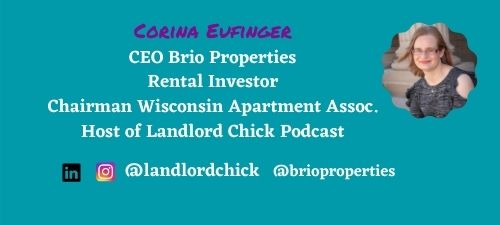Screening Criteria: The Best Line of Defense
Screening criteria is always important. You should always be following your screening criteria every time you process an application or talk to a prospect. But nowadays I find myself pontificating more and more about screening criteria on investor forums. Why? Because in the midst of these eviction moratoriums and other restrictions, our screening criteria now is our most important line of defense.
One of the things that has fundamentally changed for us is how much weight and significance we place on our screening process. In a way we have tightened our screening criteria. Now this isn’t to say it was loose and wild before, because it certainly wasn’t. We’ve made small tweaks that have made the difference in what applications are accepted and what ones are not.
I’m not going to go into specifics in our screening criteria because what is permissible for us here in Wisconsin can be vastly different than what you can do in other states. Even your county or city can have a say in what is legal for screening criteria. This is more to get you thinking about your own screening criteria and pondering how you can make it more ironclad to get the tenant you want for you unit.
I should stop and say that of course with a more stringent screening criteria you may face a slightly longer vacancy BUT would you rather have it sit an extra 3 weeks for a highly vetted tenant versus roll the dice and possibly get stuck with a tenant who can’t pay in a city where judges aren’t giving evictions of any form the light of day?
#1 Consider Adjusting Your Credit Score Parameters
Our screening criteria uses credit score as one of the main determining factors. One of the ways you can help reinforce your first line of defense right now is shore up your credit score requirements. Increase your minimum score requirement. What class of property you are renting out will play into how much you might want to adjust the bottom score. Consider a tiered credit score system where a credit score in this range is X% of deposit more. Tier systems usually have the denial score, 2 middle tiers with additional deposit, and the top tier which is standard accept.
#2 Collect First, Last, and Security Deposit
This is something I have personally never done yet it is a practice that is used a lot by large complexes or bigger rental owners sometimes. You may have heard the term “first and last month’s rent” from a renter when they are inquiring about move-in terms. That is different. (I also could go on a separate rant about why this turn of phrase is horrible.) In this equation we are collecting the first month, the last month as well as the standard deposit. (CAUTION: Check your state statutes on how you are permitted to record this. Some states won’t allow you hold future rent payments so you may have to refer to it as a security deposit in your records and possibly your ad as well.)
Now if you think this is crazy because “the economy is rough and people don’t have savings”. Numerous banks are pointing to a record high of savings in their bank accounts. Also, when the economy is rough that is when you want to protect your investment the most.
#3 Get Those Employer References
I prefer employer references over rental verifications any day of the week. A landlord or management company may have a vested interest in embellishing the facts to get rid of their not so great tenant. Employer references rarely have anything at stake in their report on an employee in a screening process. Throw in a question like “Is there any reason this person may not be employed by the company in ____ months?” Place more weight on the employer’s reference than a stellar rental verification.
#4 Stick Your Criteria Like Glue
Now is not the time to make exceptions to your screening criteria. You set those parameters for a reason. They are meant to help you locate the ideal tenant for your property. Why during uncertain times would you suddenly view the document as guidelines? During tough times is when you should look at your screening criteria as iron clad. It’s what you created to bring you the tenant you wanted to rent to in the first place. Don’t get desperate and lessen that criteria. (Not to mention getting flexible with your criteria may cause Fair Housing issues.)








